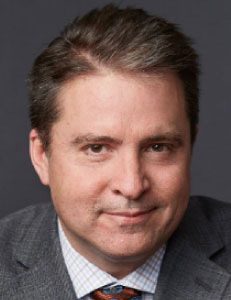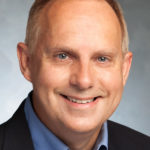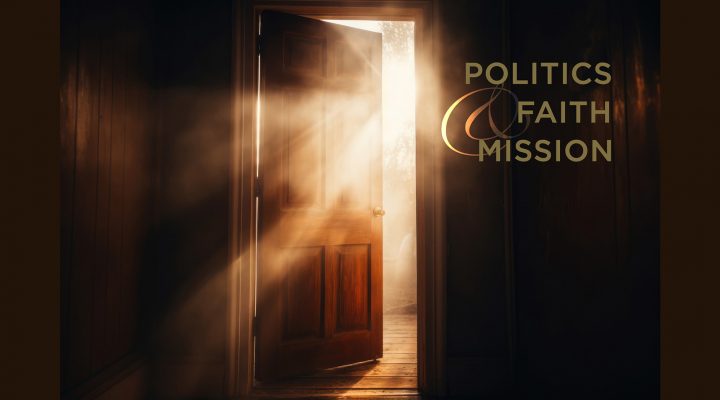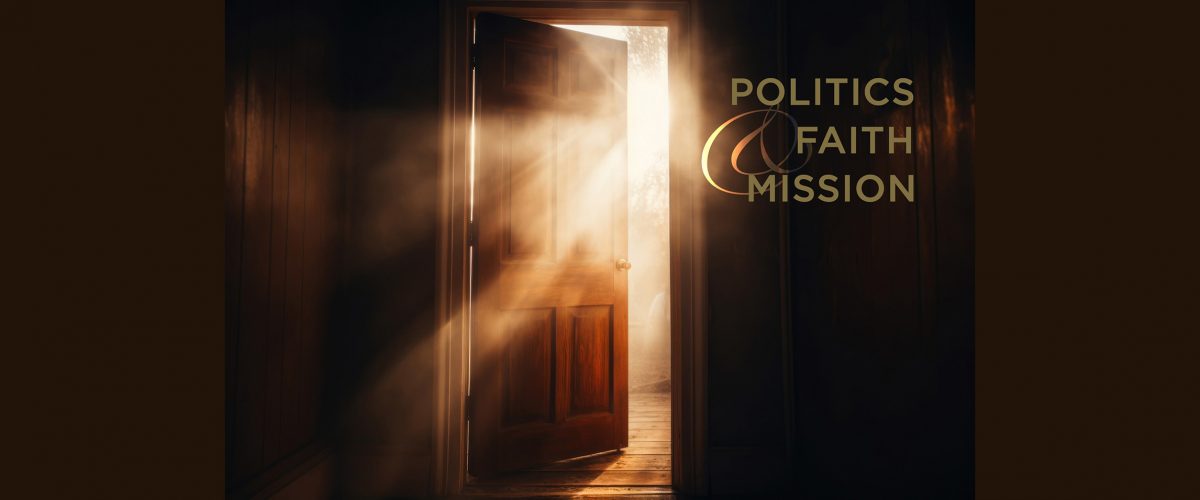Robert P. Jones is founder and president of Public Religion Research Institute and one of America’s foremost scholars on race, religion and politics. He is regularly featured in the news media and is the author of several essential books including the new paperback edition of The Hidden Roots of White Supremacy and the Path to A Shared American Future, out today from Simon & Schuster with a new Afterword. Robby and I have had a number of public conversations over the past two years; it’s a joy to share this one with you.
Greg Garrett: Robby, I rely on you and the work of PRRI to help me make sense of trends and stories. As you think about the research you all have presented this year, what stands out to you about the 2024 election and the political trends you’re observing? Is there anything the headlines aren’t capturing?

Robert P. Jones
Robert P. Jones: We just released the latest edition of the PRRI Census of American Religion, which is the largest and most up-to-date portrait of the American religious landscape out there — based on years of analysis and nearly 500,000 interviews. Behind the constant chaos of the Trump/Vance campaign and the unusual passing of the torch from Biden to Harris, the mainstream political press hasn’t fully integrated into their narrative important demographic trends that help explain our current situation.
As I first documented in my book The End of White Christian America (published in 2016 before Donald Trump rose to power), the shift away from being a majority white Christian country — which occurred during the tenure of our first African American president — remains the most critical cultural event of our time.
That sea change, and the desperate white evangelical reaction to it, is the Rosetta Stone for understanding the perplexing politics of our day. When Barack Obama took office in 2008, white Christians comprised a majority of Americans (54%). By 2016, we no longer were a majority white Christian nation (47%). That trend has continued unabated, and today white Christians comprise only 41% of Americans.
“That sea change, and the desperate white evangelical reaction to it, is the Rosetta Stone for understanding the perplexing politics of our day.”
It’s no coincidence that the party Trump has commandeered with his backward-looking message of grievance, nostalgia and white Christian entitlement has essentially devolved into a white Christian nationalist party.
PRRI’s new data, for example, shows nearly seven in 10 self-identified Republicans, compared to only about one quarter of Democrats, identify as white and Christian. Moreover, a majority of Republicans are either outright supporters of or strongly sympathetic to the tenets of Christian nationalism, the idea that America should be a Christian nation and that U.S. laws should be based on the Christian Bible.
The promise to restore a white Christian America — not issues like abortion or LGBTQ rights — always has been the stronger glue binding white evangelicals and other white Christians to Trump and his Make America Great Again movement.
GG: The paperback edition of your recent book, The Hidden Roots of White Supremacy, is coming out today. In that book, you explore some of the ways America’s treatment of indigenous peoples and of Black people parallel each other. Which is to say white Christian men have been horrible to lots of people who don’t share that identity. What were your biggest insights from writing the book, and what else have you learned as you’ve talked about it with others?
RJ: When I was conducting research for The Hidden Roots of White Supremacy — which is the most historically grounded book I’ve written — it became clear to me that the enslavement of Africans was not America’s original sin but, rather, the continuation of acts of genocide and dispossession flowing from the first European contact with Native Americans.
And it also became evident that this worldview would not have taken hold, would not have had the power it had, were it not for a 15th-century Christian doctrine that came to be known as the Doctrine of Discovery. This sweeping church doctrine, first propagated by the Catholic Church but embraced by Protestant leaders as well, made an astonishingly arrogant theological claim — that God had designated all territory in the world that was not already inhabited or controlled by Christians as their new promised land.
“Is America a divinely ordained promised land for European Christians?”
This reframing of American origins explains how the founders of the United States could build the philosophical framework for a democratic society on a foundation of mass racial violence and land theft — and why this paradox survives today in the form of white Christian nationalism. Our most visceral divides and our deepest contradictions are contained in this question, which we are still struggling to answer: Is America a divinely ordained promised land for European Christians? Or is America a pluralistic democracy where everyone, regardless of race or religion, stands on equal footing as full citizens?
GG: Last fall in Paris we were talking at the American Cathedral about how when a white politician uses the phrases “our country” or especially “our civilization” it tends to be a white supremacist tell. What are some of the places you’re seeing that “our” language deployed in this election? What are the assumptions that go along with that “our” language?
RJ: Donald Trump often uses possessive pronouns such as “we” and “our” in this telling way. One clear example was Trump’s campaign stop at the annual meeting of the National Religious Broadcasters in Nashville on Feb. 22, an organization created by leaders of communications outlets that operate in the white evangelical world. In his rambling 75-minute speech (see my Substack newsletter for a full analysis), Trump delivered his most thorough articulation of his vision of white Christian nationalism to date.
It was received by an enthusiastic crowd, many of whom sported red hats emblazoned with the words “Make America Pray Again.” Part of Trump’s speech was typical for a politician addressing a religious group. He asked for their support and for their “prayers for this country.” But then Trump made a pledge to “bring back our religion,” an explicit promise to give white evangelical Christians political power and a privileged place over other Americans. His chilling remarks merit quoting at length:
And I make you a simple promise. In my first term, I fought for Christians harder than any president has ever done before. You know that, you know that. And I will fight even harder for Christians with four more years in the White House. We did things that, uh, the likes of which nobody has ever done for Christians in this country. I get in there, you’re gonna be using that power at a level that you’ve never used it before. It’s gonna bring back the churchgoer…. We’re gonna bring it back. And I really believe it’s the biggest thing missing from this country. It’s the biggest thing missing. We have to bring back our religion. We have to bring back Christianity in this country.
Although Trump uses the broad term “Christians,” Trump only makes these promises about power when he is speaking to white evangelical Protestant audiences. The promise to privilege the interests of Christians — particularly the interests of only one faction of Christians who only represent 13% of the U.S. population today — over Americans of other religions or of no religion is obviously fundamentally anti-democratic.
“Trump only makes these promises about power when he is speaking to white evangelical Protestant audiences.”
But Trump’s language here is not just theocratic. It’s also about whiteness. It’s impossible to imagine Trump, for example, making a pledge to “bring back our religion” to an organization of Black Christian communicators.
GG: The American presidential election seems to have been reset by President Biden stepping aside and Vice President Harris being elevated. You said on social media the other day that we shouldn’t pay attention to polling until after Labor Day. What should we be paying attention to? And when we start paying attention to polls, what should we be cognizant of?
RJ: As the founder and president of PRRI, I obviously value what good public opinion survey research can tell us about the shape of an election. But far too often, in their quest for clicks, the media attach sensational headlines that have no defensible connection to the underlying data (see Newsweek’s recent indefensible headline: “Kamala Harris Trails Donald Trump in 5 New Battleground Polls”).
Here are just a few guidelines about how to be informed consumers of political polling between now and the presidential election:
- If you’re primarily concerned about the presidential horse race, ignore the national polls. The next occupant of the White House will be determined by the election outcomes in seven swing states: three Rustbelt Midwestern states of Wisconsin, Michigan and Pennsylvania; and four Sunbelt Southern states of Nevada, Arizona, Georgia and North Carolina.
- Here’s a general rule for interpreting the results of individual swing state polls. No matter what the headline says, if the spread in a battleground poll is less than 7 percentage points, the results are a statistical tossup. There is no such thing as a candidate “leading” by two or three points in a poll of 800 or even 1,000 voters (and any conclusions about subgroups like religious groups, men/women, or Black/white/Latino voters would need to show margins much larger than that). Here’s the mantra for an individual poll: If the gap’s not seven, it’s even.
- Polling aggregators, such as FiveThirtyEight and RealClearPolitics, can help increase confidence, but margins of error apply here as well. To its credit, FiveThirtyEight supplies a visual aid that displays a 95% confidence interval around its trend line. If there’s no daylight between those confidence intervals, it’s a tossup. As of Labor Day, even looking at aggregated polls, Trump and Harris are essentially tied in each of the seven swing states. Based on past experience, my prediction is that we won’t see major swings in the polls over the next two months, which means the election will come down to election turnout — something polls are not great at predicting.
- Most importantly, we must remember what public opinion surveys are and aren’t. They are an important snapshot of attitudes at a given time. They are not oracles that predict the future. We should read every poll the way we read our retirement fund statements, with the knowledge that “past performance is no guarantee of future results.”
GG: I’m asking folks where they’re finding hope and joy this year in a complicated and fastmoving world. What are you reading, watching, listening to or what are you seeing that gives you hope in 2024?
RJ: The subtitle of my most recent book is “And the Path to a Shared American Future.” When I was researching the book, I spent considerable time with communities in Mississippi, Oklahoma and Minnesota who were working to bring justice and healing to their communities from past experiences of racial violence. I had the privilege of seeing how ordinary people in these communities were doing extraordinary work telling the truth and repairing the damage, and how that work illuminates the possibility of a new American future in which we finally fulfill the promise of our democracy.
The penultimate chapter in my book is titled, “The Search for Hope in History.” I concluded the chapter with these words:
The efforts by so many in these local communities show us what can happen when just a few dedicated souls decide to tell a truer story about who we are and then harness the energy unleashed by that confession for creative action. Taken together, along with the myriad of other efforts across the country, they reveal unrealized possibilities of our nation. While the destination seems scarcely discernible on the horizon, these beacons are sufficient, if we persist, to help us chart a new course.
Despite the polarization and dangers in our current political moment, I remain convinced that the waters of justice are rising in a way that feels different from any other in my lifetime. And I come back often to James Baldwin’s simple wisdom: that despite everything, and even despite ourselves, we can do and be better.

Greg Garrett
Greg Garrett teaches creative writing, film, literature and theology classes at Baylor University. He is the author of two dozen books of fiction, nonfiction, memoir and translation, including the critically acclaimed novels Free Bird, Cycling, Shame and The Prodigal. His latest novel is Bastille Day. He is one of America’s leading voices on religion and culture. Two of his recent nonfiction books are In Conversation: Rowan Williams and Greg Garrett and A Long, Long Way: Hollywood’s Unfinished Journey from Racism to Reconciliation. He is a seminary-trained lay preacher in the Episcopal Church. He lives in Austin with his wife, Jeanie, and their two daughters.
More from this series:
Politics, faith and mission: A conversation with Brian Kaylor
Politics, faith and mission: A conversation with Colin Allred
Politics, faith and mission: A conversation with Tia Levings
Politics, faith and mission: A conversation with Linda Livingstone
Politics, faith and mission: A conversation with Samuel Perry
Politics, faith and mission: A conversation with Jimi Calhoun
Politics, faith and mission: A conversation with David Dark
Politics, faith and mission: A conversation with Randolph Hollerith
Politics, faith and mission: A conversation with Jillian Mason Shannon
Politics, faith and mission: A conversation with Bishop Mariann Edgar Budde
Politics, faith and mission: A conversation with Vann Newkirk II
Politics, faith and mission: A conversation with Sarah McCammon
Politics, faith and mission: A conversation with Winnie Varghese
Politics, faith and mission: A conversation with Kaitlyn Schiess
Politics, faith and mission: A conversation with Russell Moore
Politics, faith and mission: A BNG interview series on the 2024 election and the Church
Politics, faith and mission: A talk with Tim Alberta on his book and faith journey
Politics, faith and mission: A conversation with Jemar Tisby
Politics, faith and mission: A conversation with Leonard Hamlin Sr.
Politics, faith and mission: A conversation with Ty Seidule
Politics, faith and mission: A conversation with Jessica Wai-Fong Wong


